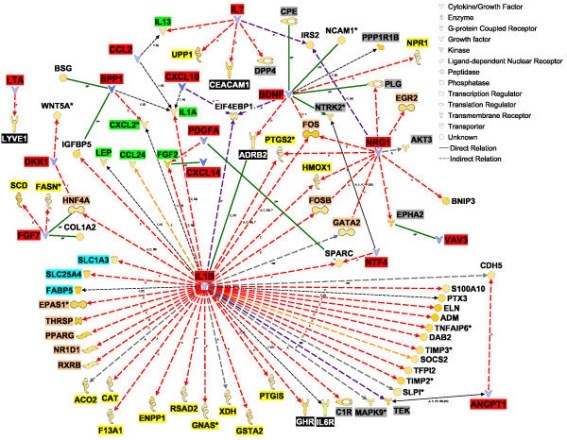Cytokines and Growth Factors
The Introduction of Cytokines

Cytokines (CK) are low-molecular-weight soluble proteins produced by various cells induced by immunogens, mitogens or other stimulators, and have many functions such as regulating innate and adaptive immunity, hematopoiesis, cell growth, and repair damaged tissues. Cytokines can be divided into interleukins, interferons, tumor necrosis factor superfamily, colony stimulating factors, chemokines, growth factors and the like. Numerous cytokines play a role in the body through paracrine, autocrine or endocrine. Cytokines play a biological role by binding to corresponding cytokine receptors on the cell surface. The combination of cytokines and their receptors initiates complex intracellular molecular interactions that ultimately cause changes in cellular gene transcription, participate in regulating innate immune and adaptive immune responses, stimulate hematopoietic function, cell activation, proliferation and differentiation, induce or inhibit cytotoxicity and induce apoptosis. Cytokine research has very important theoretical and practical significance, as it helps to elucidate the molecular level of immune regulation mechanism, and contributes to the prevention, diagnosis and treatment of diseases. The recombinant cytokines produced by genetic engineering technology have been used for treating tumor, infection, inflammation, hematopoietic dysfunction, etc., and received good results. Cytokines are gradually being used as adjuvants in the development of vaccines, such as interleukin-2.
Growth Factor
Growth factor is a class of peptides that bind to specific, high-affinity cell membrane receptors and regulate multiple effects such as cell growth and other cellular functions. It is a cytokine secreted by a variety of cells, acting on specific target cells and regulating cell division, matrix synthesis and tissue differentiation. Many growth factors have been purified and their structural composition has been determined. Various growth factors have their corresponding receptors which are transmembrane proteins that are ubiquitous on the cell membrane. Many receptors have kinase activity (especially tyrosine kinase activity), such as PDGF receptor and EGF receptor. Growth factors that have been found include platelet growth factor (PDGF), osteosarcoma-derived growth factor (ODGF), epidermal growth factor (EGF), transforming growth factor (TGFα and TGFβ), fibroblast growth factor(αFGF, βFGF), insulin-like growth factor (IGF-I, IGF-II), nerve growth factor (NGF), interleukin growth factor (IL-1, IL-1, IL-3, etc.), erythrocyte growth Element (EPO), colony stimulating factor (CSF), etc. Since growth factors are secreted by normal cells, neither drug-toxic nor immune response, some of them have been tested for clinical treatment while studying their physiological mechanisms. For example, interleukin-2 has been used to treat cancer, and has obvious effects on kidney cancer and melanoma. Interleukin-3 is used to treat indications such as bone marrow failure and thrombocytopenia. Epidermal growth factor is used for human burns, wounds, diabetic skin ulcers, acne, varicose skin ulcers and corneal damage to promote wound healing.
References:
- Hajimiri M, Shahverdi S, Kamalinia G, et al. Growth factor conjugation: Strategies and applications. Journal of Biomedical Materials Research Part A. 2015, 103(2):819-838.
- Discher D E, Mooney D J, Zandstra P W. Growth factors, matrices, and forces combine and control stem cells. Science. 2009, 324(5935):1673-1677.
- Jones J I, Clemmons D R. Insulin-Like Growth Factors and Their Binding Proteins: Biological Actions. Endocrine Reviews. 1995, 16(1):3-34.
- Feldmann M, Brennan F M, Maini R N. Role of cytokines in rheumatoid arthritis. Annual Review of Immunology. 1996, 14(11):397-440.